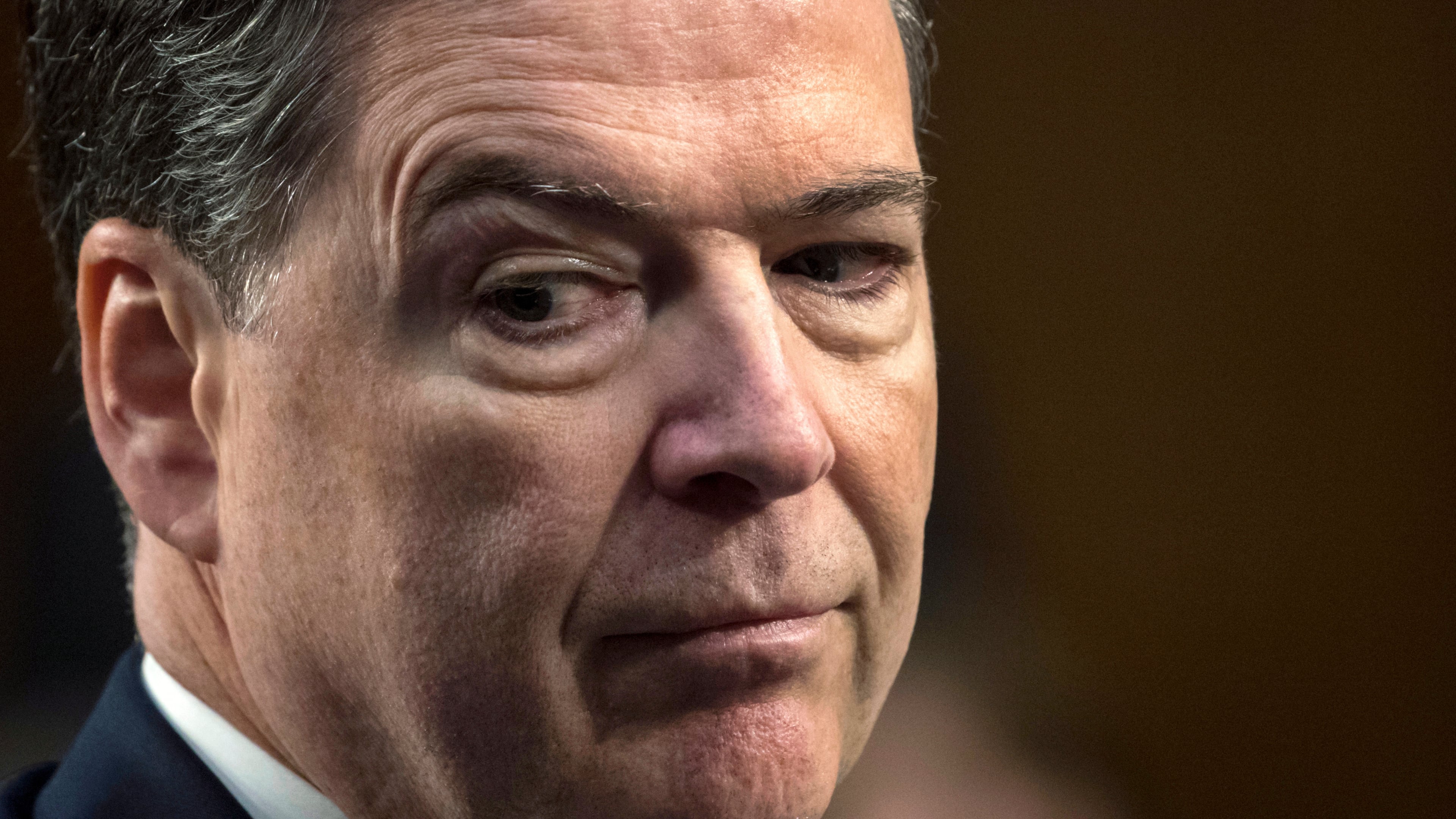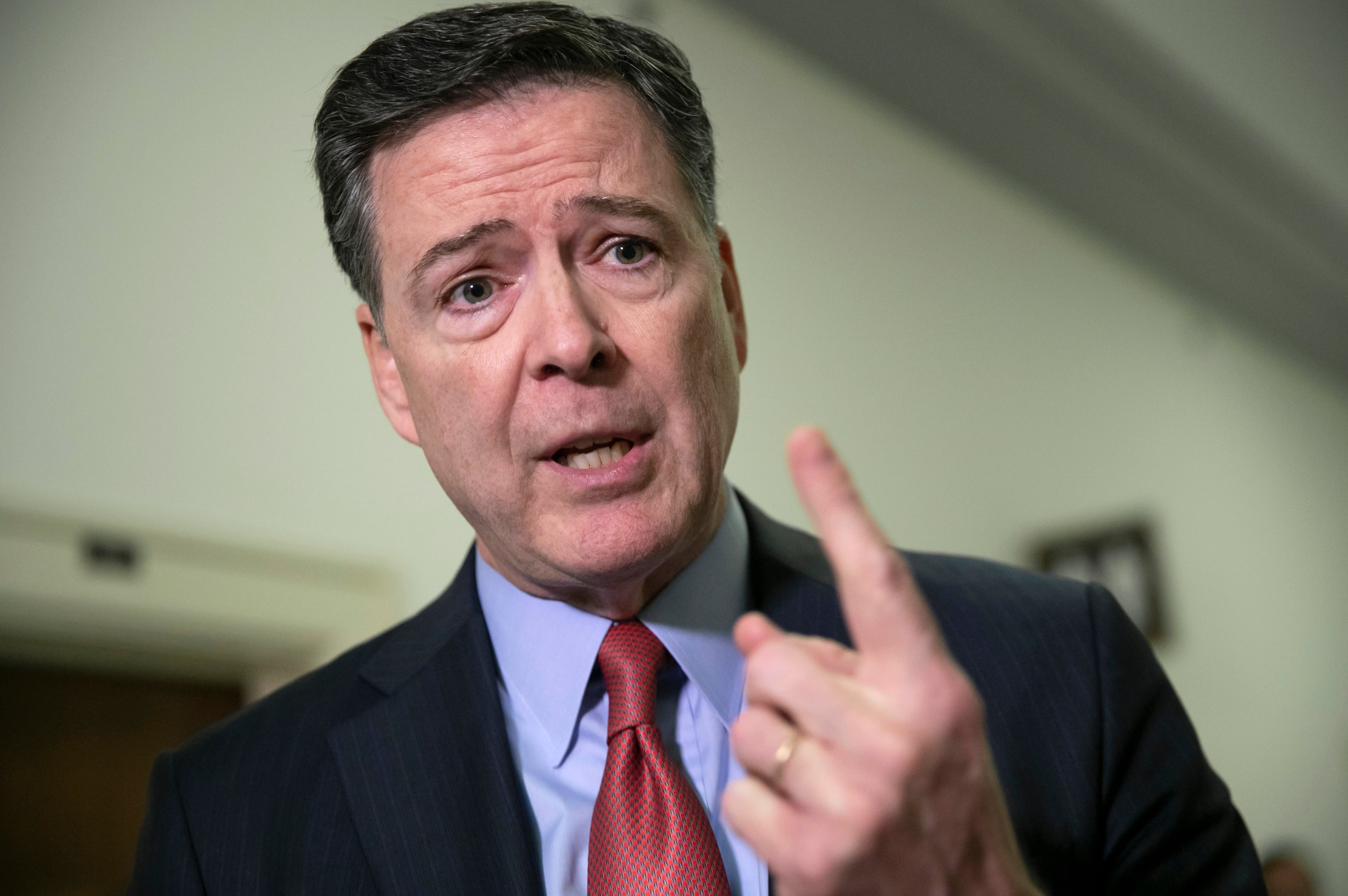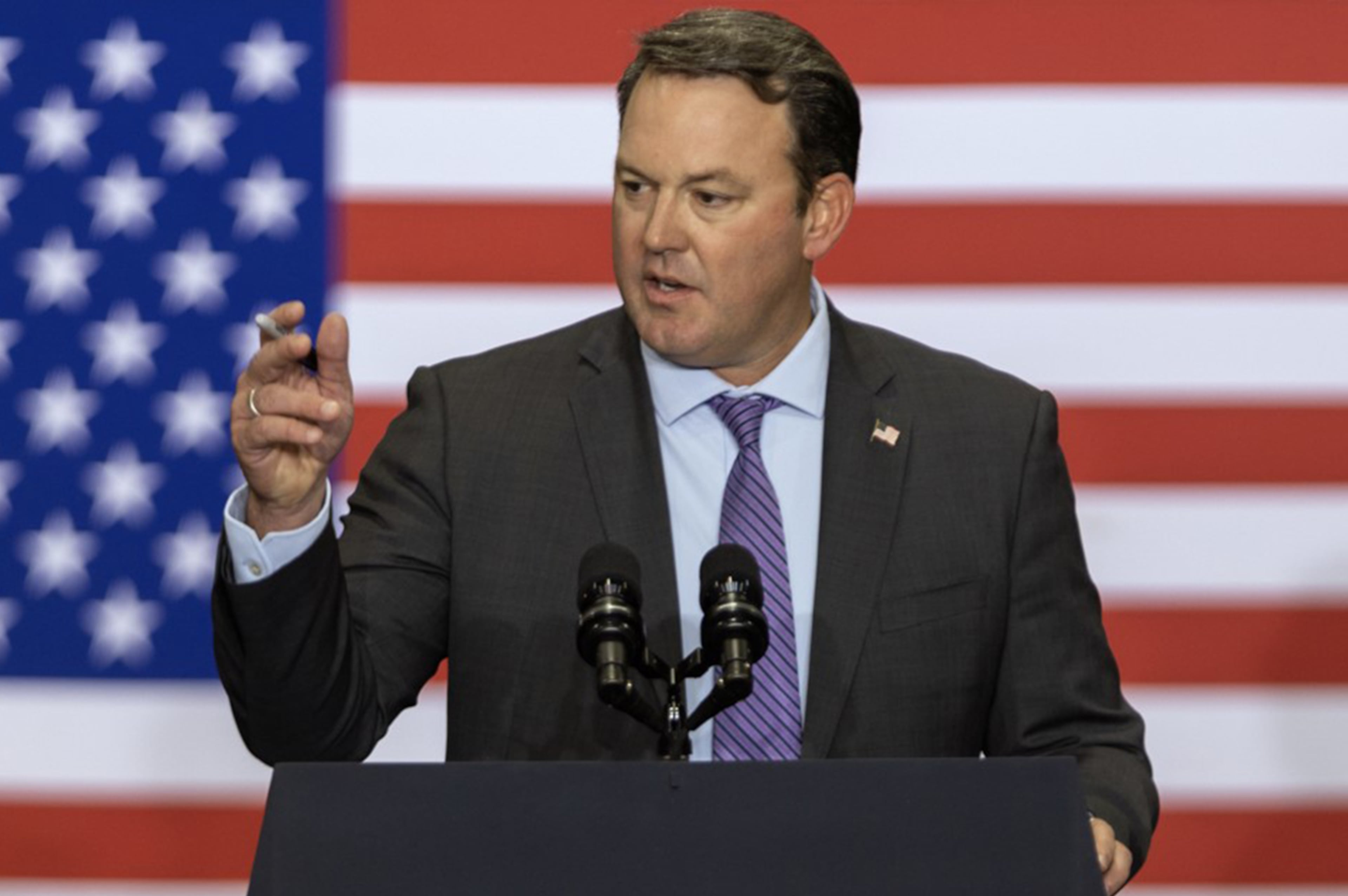Justice Department says full grand jury in Comey case didn't review copy of final indictment

ALEXANDRIA, Va. (AP) — The Justice Department says the grand jury that charged former FBI Director James Comey was not presented with a copy of the final indictment.
Prosecutors made the acknowledgment under questioning Wednesday from the judge overseeing the case.
Comey's lawyers said that lapse was grounds for dismissal of the case. There was no immediate decision from the judge.
THIS IS A BREAKING NEWS UPDATE. AP’s earlier story follows below.
ALEXANDRIA, Va. (AP) — James Comey made another run at getting his criminal case dismissed as his lawyers told a judge Wednesday that the prosecution was improperly vindictive and rooted in President Donald Trump's hatred of the former FBI director.
“The president's use of the Department of Justice to bring a criminal prosecution against a vocal and prominent critic in order to punish and deter those who would speak out against him violates the Constitution,” lawyer Michael Dreeben told U.S. District Judge Michael Nachmanoff.
The government's case appears imperiled after a different judge excoriated the department earlier in the week. There also are multiple challenges seeking dismissal of the indictment.
Comey has pleaded not guilty to charges accusing him of making a false statement and obstructing Congress and has denied any wrongdoing. He has contested the legitimacy of the hastily appointed prosecutor who filed the Trump administration's case and has said he was singled out because of the Republican president's personal animus against him, an argument being debated before Nachmanoff.
The Justice Department has denied that the prosecution was vindictive or selective and insists that the allegations support the indictment.
Motions claiming vindictive prosecution are not often successful. In arguing for a dismissal, Comey's lawyers describe the case as an outgrowth of Trump's quest for retribution. Trump fired Comey as FBI director in May 2017 as Comey was overseeing an FBI investigation into potential ties between Russia and Trump's 2016 campaign.
The two have been publicly at odds ever since, with Trump deriding Comey as “a weak and untruthful slime ball” and calling for his prosecution.
Trump amplified those demands with a September social media post in which he complained to Attorney General Pam Bondi about the lack of action against his political opponents. “We can't delay any longer, it's killing our reputation," Trump wrote, adding that “JUSTICE MUST BE SERVED, NOW!!!”
“If this is not a direction to prosecute,” Dreeben said in court, "I'd really be at a loss to say what is.”
The night of his post, Trump said he would appoint Lindsey Halligan, a White House aide without prior prosecutorial experience, as interim U.S. attorney for the Eastern District of Virginia. Halligan replaced a veteran prosecutor who was effectively forced from the job after not charging Comey or another Trump foe, New York Attorney General Letitia James.
Halligan secured an indictment of Comey days later as the statute of limitations on the case was about to expire.
Dreeben said Halligan did “what she was told to do.”
He also said the government “cannot use the power of criminal prosecutions to attempt to silence a critic in violation of (his) First Amendment rights.”
On Monday, U.S. Magistrate William Fitzpatrick criticized Halligan for her handling of the case, citing what he said was a "disturbing pattern of profound investigative missteps” in the process of securing the indictment. It is not clear whether those mistakes, which Fitzpatrick said also included Justice Department misstatements of the law to the grand jury, may result in the indictment's dismissal.

